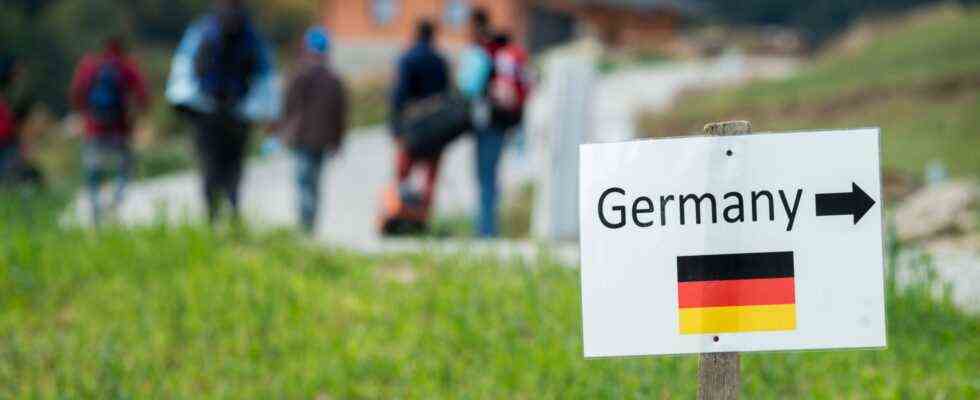Status: 01.12.2021 3:59 a.m.
The traffic light government wants to turn German migration policy upside down. At least that’s how she announces it in the coalition agreement. But what exactly should change now?
Much of the coalition agreement is still very vague. For Günter Burkhardt from Pro Asyl, however, the commitment to the rule of law in asylum policy sounds very good. “You can then no longer simply pay out the funds for border protection for Croatia or Poland.” Illegal pushbacks are then no longer possible. Countries like Poland that do not want to take in refugees should also no longer receive EU funds.
Frontex and the pushbacks
Lars Castellucci from the SPD wants a closer look at what role the European border guard Frontex plays in pushbacks. But the new traffic light government also wants fewer refugees from other EU countries to come to Germany.
Irregular migration should be reduced by improving the situation in Greece and creating legal channels, for example by recruiting more skilled workers from abroad. Castellucci of the SPD asserts: “Nobody should freeze to death at the European external borders. Nobody should drown in the Mediterranean. That doesn’t fit in with the values of Europe. We won’t be able to do that alone everywhere.”
State-funded sea rescue?
The rescue at sea is to be financed by the state – but this will require a decision at EU level. The Ampel government also wants to start a “repatriation offensive” and enter into migration agreements with third countries. That sounds like more deportations, at least like more subsidized voluntary departures for those whose asylum applications have been rejected.
In order to reach a decision more quickly, the asylum procedure should be accelerated. Burkhardt is disappointed, however, that when refugees reach Germany, they should continue to stay in initial reception centers for 18 months. “Permanent isolation with no prospects for life. The coalition agreement is poor because the duration of the time limit in the anchor centers has not been turned back. This is how disintegration becomes a program.”
Off for anchor centers
The “anchor centers” are to be abolished – but apparently not similar facilities as the initial reception facilities. Often only then do the refugees have the opportunity to contact a lawyer in order to proceed with their asylum applications. Many refugees from Afghanistan or Syria are only tolerated in Germany – tens of thousands could neither go back nor forward, says the SPD politician Castellucci. In the grand coalition there was a disagreement on this. “I believe that a more consistent approach is now possible, possibly also an honest one.”
In the future, tolerated persons should receive a probationary residence permit after five years, provided they have not committed a criminal offense. There should be no more work bans. In their probationary year, however, those tolerated have to find work. A new model for success? “That will depend on whether the tolerated people can find a job or training position despite Corona. The project is correct, but in the current Corona situation it can be difficult to find the job you need,” warns Burkhardt from Pro Asyl.
How quickly the new laws will come is still completely unclear. In any case, many projects depend on whether there is a majority for them in the Federal Council. It will depend on the countries whether naturalizations and family reunification can really be accelerated, as the traffic lights intend to do.

